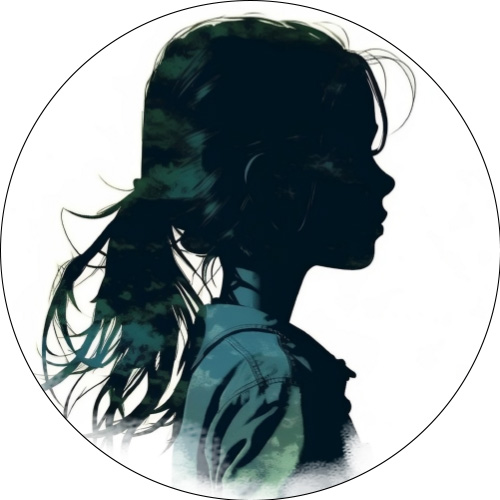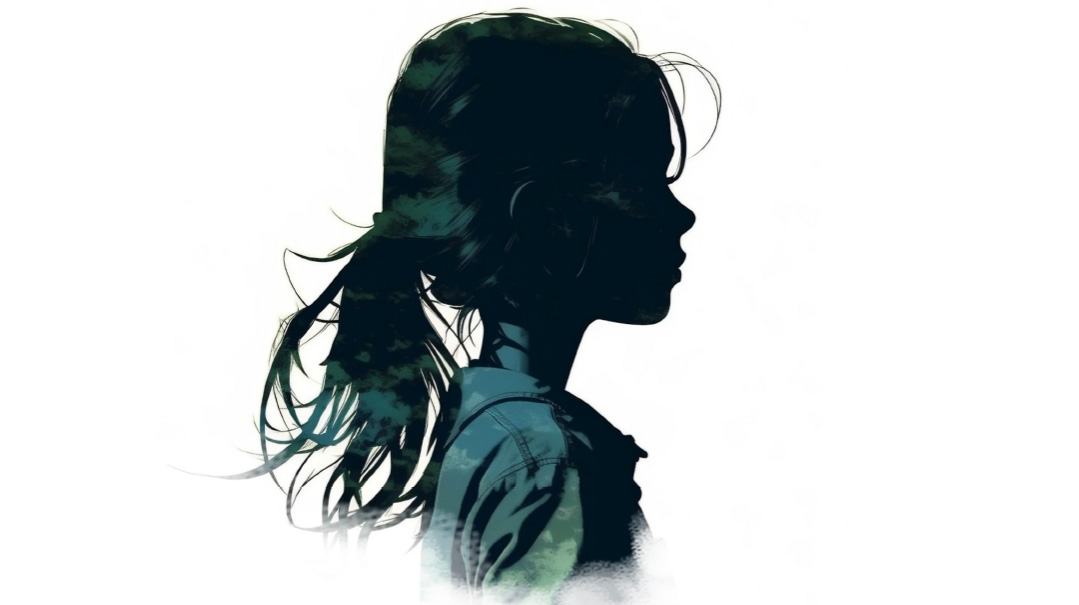The Voice Within: Chapter 3
| July 11, 2023My report cards were covered in A+’s and A’s. Yet the column labeled “participation” was glaringly different. “Needs improvement”

My youngest aunt was in high school at the time and very busy with her art course. She had to create a unit book with pictures focusing on a certain topic. She chose selective mutism as her theme. I remember how she kept snapping photos of me and how happily I posed for her. One memorable photo was a portrait of me with my lips pursed. She zoomed in on my mouth and printed it big, labeling it: “This is my selective mute niece.” She took another one of me jumping rope in my grandmother’s back garden to show that I was a normal kid. I enjoyed looking at her depictions and paintings of me, too young to be embarrassed of my situation.
Looking back, I feel lucky that I had friends and was a well-liked girl, despite my nonspeaking nature.
During recess, we would all go out to play in the yard. I would stand in my spot near the big tree at the far end of the school garden, hands tucked in my coat pockets, observing my classmates running around and playing, wishing longingly to be able to join in their fun. Now and then, a sympathetic classmate came up to me and asked me if I wanted to join in their game. I declined time and time again with a shake of my head, while inside, my heart was crying to say yes.
“Why don’t you talk?” they asked me daily.
If the teacher on duty wasn’t looking in my direction. I dared to answer quietly, “I don’t know… I just can’t!”
They didn’t understand it. I also really didn’t either.
In class, I continued to act like part of the furniture. I saw the agony on my teachers’ faces every time they would try to squeeze a simple nod or shake of the head from me.
My report cards were covered in A+’s and A’s. Yet the column labeled “participation” was glaringly different. “Needs improvement,” were words we became accustomed to as the years progressed. “Would love to see her offer her input in class.” “If only she could show her talent and intelligence in lessons as much as she shows in her work.”
Every time my teacher put on a play or choir for the mothers to come watch, I stood on the little stage, not doing any moves, mouth closed, and looking around awkwardly, while beside me, my classmates were happily singing and doing all the motions. Those times were a nightmare for me. I was trapped in my own body. I couldn’t even clap along to the beat. On the video clips of our class performances, you could spot me immediately. My eyes kept darting from right to left, and my hands were slightly fidgety as if I was trying to do the hand motions along with my classmates but couldn’t bring myself to. The other mothers always looked piteously at the mute girl. I know it’s cliché, but I honestly wished the floor would open and swallow me up.
When the show ended, I usually ran straight to my mother, who was sitting in the audience, and cried for her to take me home, even though it was still the middle of the school day.
There was quite a humorous episode that still lingers in my string of memories from back then. One day my father dropped me off at school a little earlier than usual, so I walked into my classroom and waited for the rest of my classmates to lumber in. It was just me in an empty, silent classroom, in the place where I normally sat frozen and uncommunicative.
I decided to have a bit of fun while it lasted. I began making faces, mimed, and maybe even sang a little. I know it may sound rather weird for a normal child to be doing, but this was rather exhilarating for a girl in my situation. I was almost sad when the first girls started coming through the doors. The audience had arrived. The show was clearly over. I locked my lips for the rest of the day and only retrieved the key when I walked off the school grounds.
to be continued…
(Originally featured in Mishpacha Jr., Issue 969)
Oops! We could not locate your form.


